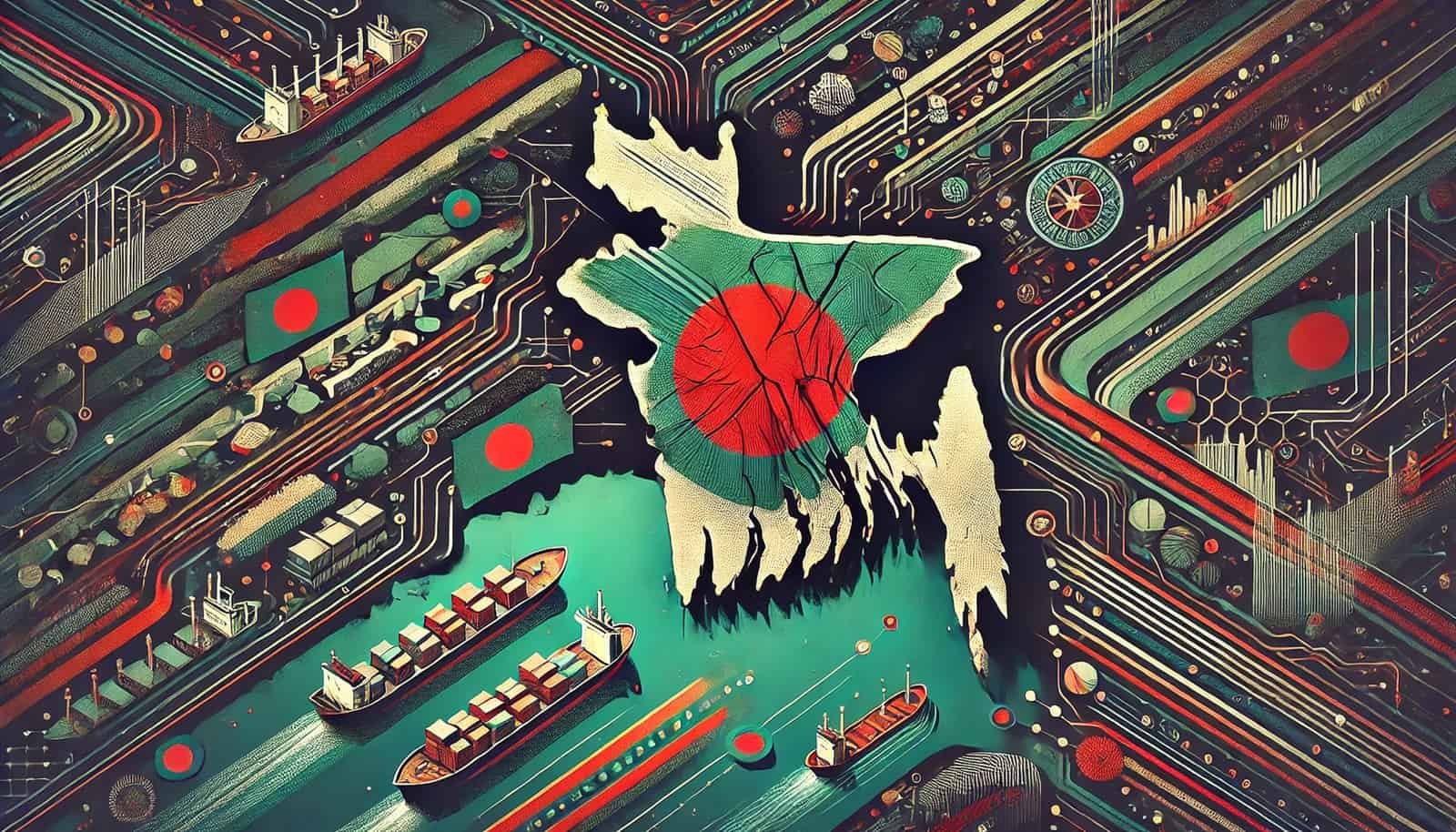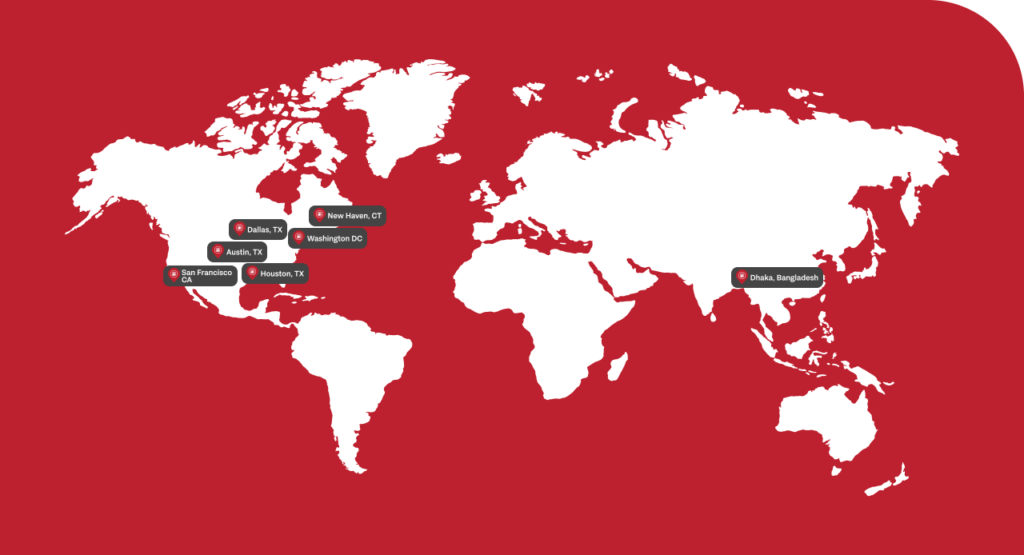


History is not just a record of past events—it is a guide for the future. For Bangladesh, the July Uprising was more than a moment of political transformation; it was a reminder of our collective strength and potential. But revolutions are not just about dismantling the old—they are about building the new.
As we look ahead, we must ask ourselves: what industries define us? What strengths can we leverage to build an economy that is resilient, self-sustaining, and globally competitive?
Bangladesh has always been a land of ingenuity. Our textiles, jute, shipbuilding, and spice trade once made us a dominant force in global commerce. Today, these industries remain but in diminished form. The path to economic sovereignty lies in reviving these historical strengths—modernized, scaled, and positioned for the future.
Then: Dhaka muslin was legendary. Handwoven so finely it was called “woven air,” it was a global symbol of luxury and craftsmanship. European traders traveled thousands of miles to secure Bengal’s textiles, making it a cornerstone of global commerce.
Now: Bangladesh holds an 8% share of the $600 billion global apparel market, primarily through mass-produced ready-made garments (RMG). Muslin, however, has disappeared.
Total Addressable Market (TAM): The global luxury textiles market is estimated at $110 billion.
Opportunity: Reviving muslin as a high-end heritage product could be a billion-dollar industry on its own. If Bangladesh captures just 1% of the global luxury textile market, we could generate an additional $1 billion annually—while reclaiming our cultural legacy.

What Needs to Be Done: Modernize traditional weaving techniques with advanced textile technology, train artisans, and secure government support for muslin-focused economic zones.
Inspiration: India’s revival of Banarasi silk and China’s branding of traditional silk textiles serve as models.
UBUI’s Role: Connecting designers, textile experts, and investors to rebuild the muslin industry as a premium brand for global markets.
Then: Chittagong’s shipyards were renowned for crafting durable and elegant vessels that navigated global trade routes. Bengal’s ships carried goods across the Indian Ocean, Arabian Sea, and beyond.
Now: Bangladesh holds less than 0.1% of the global shipbuilding market, with production focused on small regional orders.
Total Addressable Market (TAM): $150 billion, with rising demand for eco-friendly vessels and regional transport expansion.
Opportunity: By modernizing shipyards and focusing on green vessels, capturing just 1% of this market could generate $1.5 billion annually—reviving an industry that once defined Bengal’s maritime legacy.

What Needs to Be Done: Invest in modern shipbuilding technologies, establish strategic alliances with global maritime companies, and provide government subsidies for green ship development.
Inspiration: South Korea’s and Japan’s rise as shipbuilding powerhouses through strategic state-backed investments and industry alliances.
UBUI’s Role: Creating an investment pipeline for shipbuilding modernization, linking local expertise with global sustainability trends.
Then: Bengal’s jute dominated global markets, known as the “plastic of its time.” Narayanganj was the undisputed hub of jute production, fueling industries across Europe and Asia.
Now: Bangladesh exports $1.1 billion in jute products annually, accounting for 11% of the global market. Yet, the industry remains underdeveloped.
Total Addressable Market (TAM): $10 billion, with rising eco-consciousness driving demand for biodegradable alternatives to plastic.
Opportunity: By capturing an additional 20% of the jute market, Bangladesh could add $2 billion in annual revenue and solidify its position as a global leader in sustainable materials.

What Needs to Be Done: Modernize jute processing facilities, develop high-value jute-based products like bioplastics, and secure global trade agreements for eco-friendly packaging.
Inspiration: The Netherlands’ transition to biodegradable materials and India’s reinvestment in sustainable jute products.
UBUI’s Role: Advocating for investment in jute innovation—turning it into high-value bioplastics, textiles, and export-grade finished goods rather than raw materials.
Then: Bengal’s spices and salt fueled global trade. Merchants prized our turmeric, cinnamon, and peppers for their quality and potency.
Now: Bangladesh’s spice exports are worth just $50 million annually, representing less than 0.5% of the global market.
Total Addressable Market (TAM): $22 billion, with rising demand for organic and premium spices.
Opportunity: Establishing premium organic spice brands could capture 5% of the global market, generating $1 billion annually and re-establishing Bangladesh as a major player in the spice trade.

What Needs to Be Done: Develop organic spice farms, improve processing and packaging, and build strong global branding campaigns for Bangladeshi spices.
Inspiration: Sri Lanka’s Ceylon cinnamon branding and India’s geographical indication (GI) tagging for unique spices.
UBUI’s Role: Facilitating branding, packaging, and export growth strategies for Bangladeshi spice producers to enter high-margin international markets.
Invest in skills, craftsmanship, and production to bring industries like muslin and jute back to global prominence. Establish vocational training centers, financial incentives, and Special Economic Zones (SEZs) to support artisans and SMEs. Integrate AI-driven quality control and sustainable production techniques to modernize heritage industries.
Leverage eco-conscious markets by developing sustainable, biodegradable, and ethical product lines. Expand jute-based biodegradable packaging, invest in circular economy models for textiles, and promote organic spice farming. Position Bangladesh as a leader in global green manufacturing.
Shift from raw material exports to high-value finished goods with technological and process innovation. Establish R&D labs for textile and manufacturing advancements, integrate AI and robotics into production, and build a ‘Made in Bangladesh’ premium global brand.
The world is shifting, and Bangladesh must not just adapt—we must lead.
This is our time to redefine our global identity—not as followers, but as pioneers of sustainability, quality, and heritage-driven innovation. Through a bold global branding campaign, international trade events, and strategic partnerships in emerging markets, we will expand Bangladesh’s economic influence and shape the future of commerce.
The world is watching. Will we rise to the challenge, or let history pass us by?
Join UBUI. Be the movement. Drive the transformation. 🇧🇩🚀

Contributor: UBUI Board Members